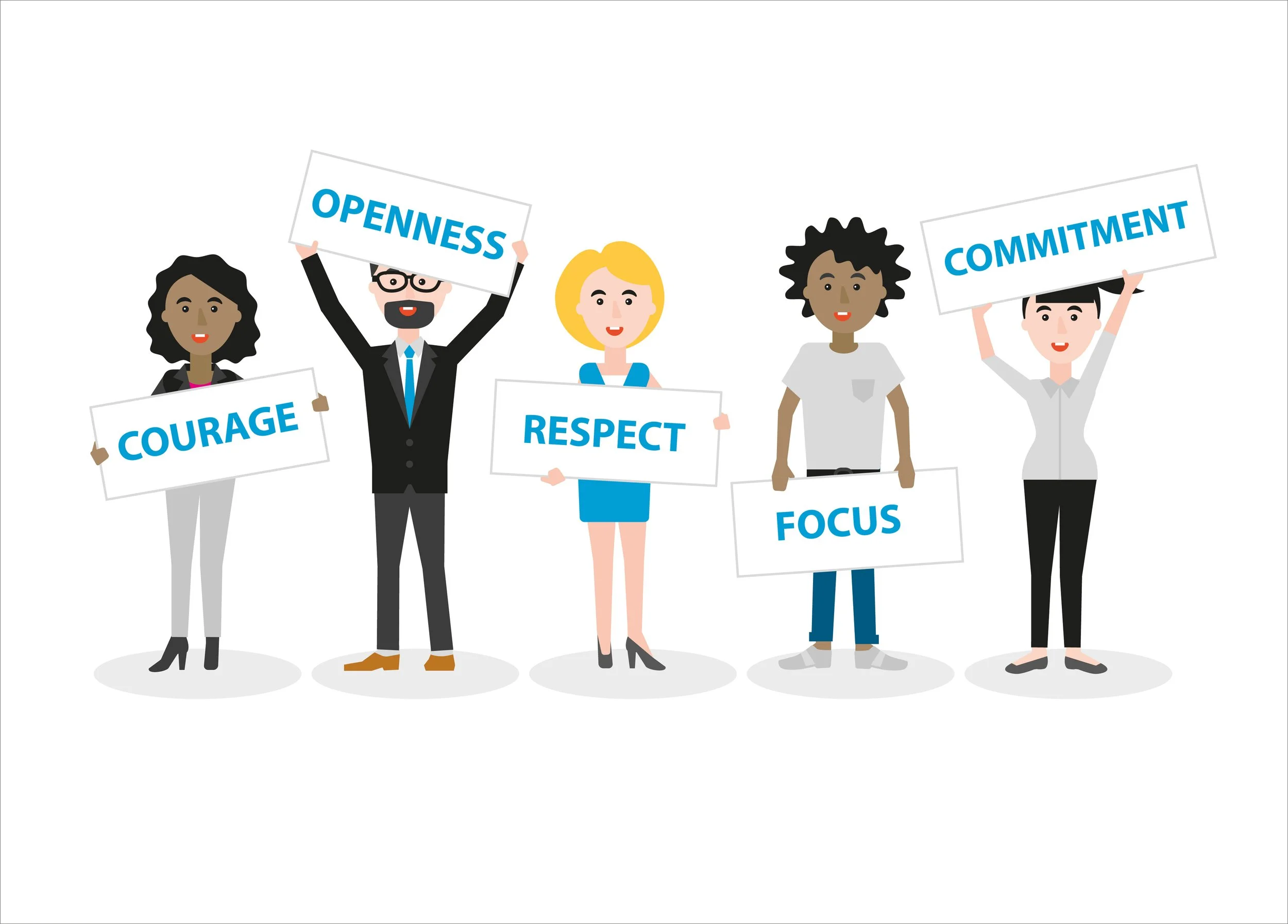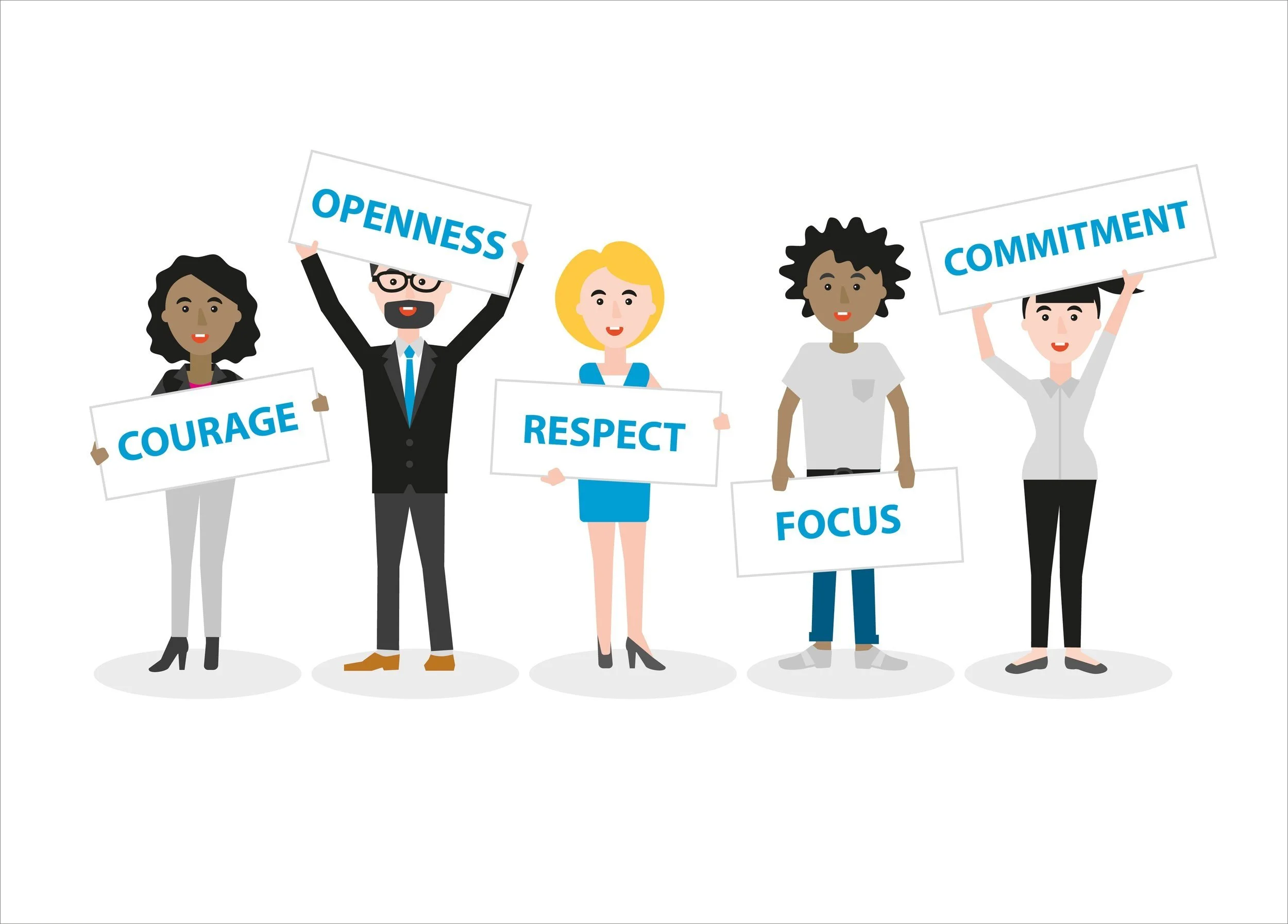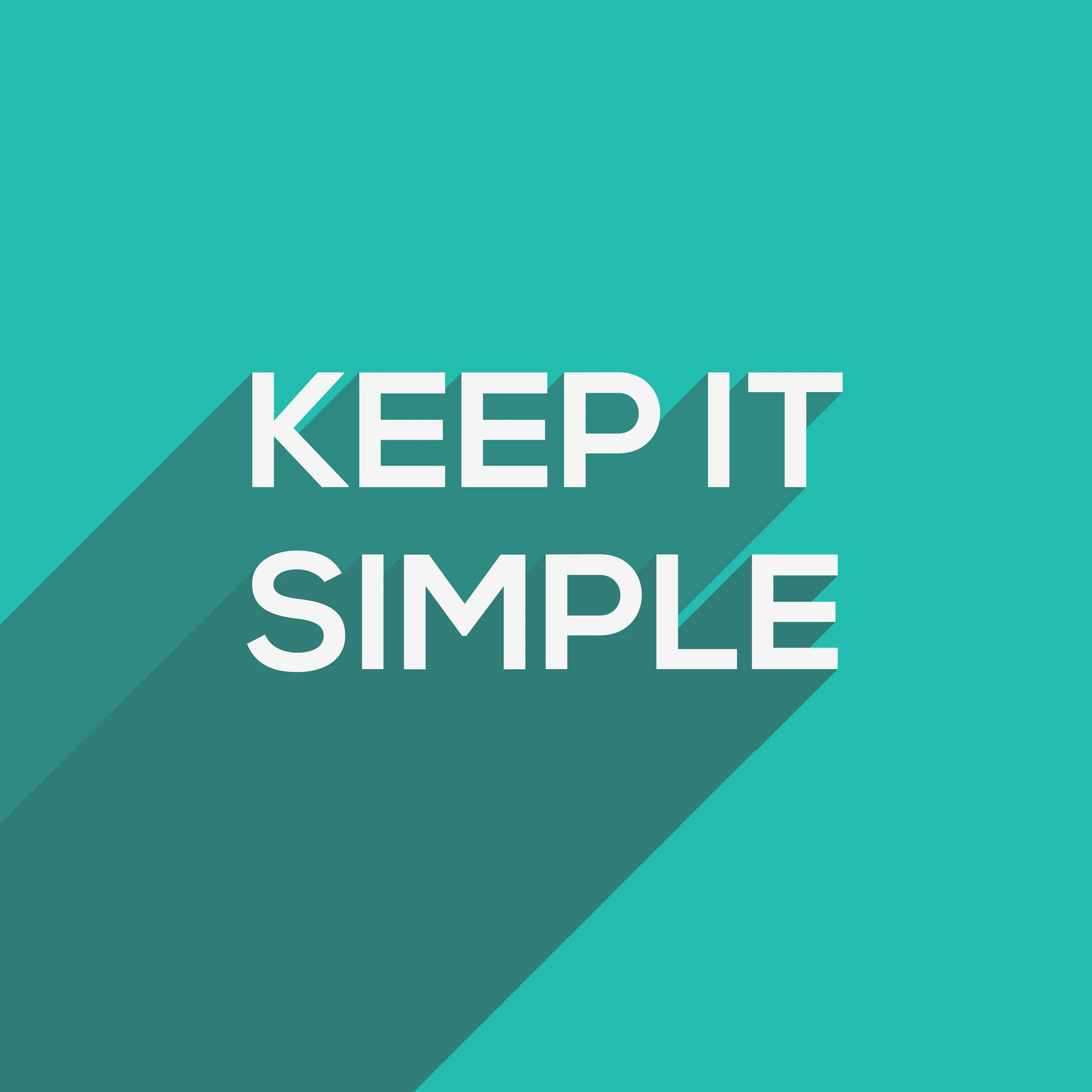The Why Behind Your What: Uncovering the Deeper Meaning Behind What (Really) Matters to You
Values serve as our internal compass, guiding our decisions and actions. By understanding and aligning with them, we gain clarity, purpose, and resilience. Discovering these core beliefs requires introspection: reflecting on moments of joy and pride, and identifying the fundamental principles that resonate with us. Once recognized, standing firm in these values allows us to live with authenticity, garnering respect and fostering personal growth. Embracing our values enriches not only our lives but inspires those around us to honor their own truths.
What truly matters to you?
Setting aside family, friends, even pets or possessions, could you immediately list your top five personal values if asked?
Every individual, organization, or community operates based on a set of values, whether they’re conscious of them or not. These values are the unseen drivers of decisions, the compass for our choices, and the fuel for our passions.
When you understand and align with your values, you empower yourself to live with purpose, clarity, and authenticity.
Personal values aren't just abstract notions. They serve as our compass in navigating the unpredictable journey of life.
These values deeply influence our perspectives, motivate our actions, and guide our responses. In the midst of uncertainty, they offer clarity and stand as unyielding pillars of strength and direction.
Why should we care about recognizing our values?
Because knowing them enhances self-awareness, allowing us to lead more purposeful and aligned lives. When we understand what truly matters to us, decision-making becomes more intuitive, relationships grow more meaningful, and our daily actions mirror our deepest beliefs. In essence, identifying our personal values is akin to discovering a hidden map, one that charts a path to authenticity, fulfillment, and genuine happiness.
The Power of Having Values
Values, in their purest form, are the fundamental beliefs that guide our thoughts and actions. They are the pillars that support our character and the foundation upon which we build our lives. Here are some of the powers they wield:
Direction: Your values are your inner compass. They provide clarity when faced with difficult decisions or uncertainties. If you ever feel lost, revisiting your values can illuminate the path forward.
Purpose: When our actions are in alignment with our values, we live with a deeper sense of purpose and fulfillment. It's like fitting the pieces of a puzzle together—the image becomes clear, and everything feels right.
Strength and Resilience: During challenging times, it’s our values that can provide strength. They remind us of what’s important, and they give us the resilience to push through adversity.
Why Values Matter
Personal values are the cornerstone of our decision-making process. They influence our reactions to situations, shape our behaviors, and set a framework for our understanding of right and wrong.
Additionally, knowing your values can:
Enhance Self-Awareness: Understanding what drives you helps you make more informed decisions.
Boost Confidence: When you act in line with your values, you stand firm in your beliefs.
Guide Purpose: Values can point you toward what gives your life meaning.
Foster Authenticity: Living by your values is a testament to your genuine self.
What Are Your Top Five Personal Values?
Discovering Your Values
There's a vast ocean of values out there, from honesty and respect to adventure and creativity. Often, our values are shaped by our upbringing, experiences, culture, and personal reflections. But as we grow and evolve, it’s essential to consciously recognize and define them. To help you embark on this self-exploration, here are some guiding steps:
Reflect on Past Experiences: Think about moments in your life when you felt extremely proud or, conversely, moments of regret. What values were upheld or violated in those situations? Think about the times you felt happiest, most proud, or most fulfilled. What were you doing? Who were you with? What common threads can you identify?
Imagine Ideal Situations: Picture your ideal day, ideal job, or ideal relationship. What values are prevalent in these scenarios? Write down words that resonate with you. It could be anything from 'integrity', 'family', 'freedom', 'creativity' to 'adventure'. Don’t overthink—let it flow.
Test Them: Think of recent challenges or decisions. Would knowing these values have made the decision-making process easier?
Here are some to consider:
Integrity: Standing by your word and doing the right thing, even when no one is watching.
Love: Prioritizing meaningful relationships and connections.
Curiosity: A thirst for knowledge and understanding.
Resilience: Bouncing back from adversities with even more vigor.
Freedom: Valuing independence and the ability to chart one's course.
By embracing the power of values, you not only enrich your life but also inspire those around you to discover and honor their own. Remember, a life led by values is a life led by purpose. So, take a moment to reflect, discover what truly matters to you, and stand tall in your truth. By identifying and embracing our top personal values, we can lead lives of purpose, clarity, and authenticity.
From Isolation to Connection: The Tale of a Lone Wolf's Transformation
In a world that applauds independence, I wore my 'lone wolf' badge with pride. Every time I would meet someone new, and an opportunity for a friendship (or even an acquaintanceship) occurred, I would sidestep questions, afraid they'd tether me to connections I wasn't ready for. It took me a long time to realize that by daring to ask questions of others, we invite them into our world, and in return, we get a chance to step into theirs.
It's an age-old saying that knowledge is power, and there's no denying the value of understanding the world around us.
But when it comes to connecting with others, there's a unique kind of knowledge that becomes even more crucial: understanding the stories, feelings, and lives of those we interact with. This comprehension often comes from a place many of us may sometimes neglect: asking questions.
For a long time, I counted myself among those who shied away from probing questions. I believed that if I knew more about someone, I'd be obligated to forge a deeper bond, to truly care about their world. Every time I would meet someone new, and an opportunity for a friendship (or even an acquaintanceship) occurred, I would sidestep questions, afraid they'd tether me to connections I wasn't ready for.
Being fiercely independent and committed to walking my own path, I thought I could get by without these connections. I soon discovered how wrong I was, and how lonely that life can be.
The Fear of Questions
Avoiding questions is more common than you'd think. For many, it stems from a desire to maintain distance or to avoid potential vulnerability. Others worry that they'll be seen as nosy or intrusive. But beneath these apprehensions, I discovered a more profound fear in myself: a fear of meaningful connections.
However, being a lone wolf, while sometimes romanticized, is not a sustainable way to navigate through life. Humans are innately social creatures. We yearn for connection, understanding, and shared experiences. And without questions, we are limiting our capacity to forge these ties.
Questions as Bridges
Imagine walking through a vast forest, and every person you meet is an island amidst this wilderness. The only way to reach these islands is to build bridges. Questions are those bridges. They allow us to traverse the gaps between our own experiences and those of others.
When we ask questions, we're not just seeking answers. We're sending out a message: "I care. I'm interested. Tell me more." By doing so, we offer others an opportunity to share, to open up, and to connect on a deeper level.
The Depth of Understanding
In our fast-paced world, it's all too easy to engage in surface-level conversations. A simple "How are you?" often gets a standard "I'm fine" in return. But what if you dig deeper? What if you ask, "What made you smile today?" or "Is there something you're looking forward to this week?" These deeper questions open doors to genuine conversations and connections.
The more you know about someone, the better equipped you are to understand their perspective, to empathize with their experiences, and to forge a bond based on mutual respect and trust.
In all honesty, it took me a long time to realize that I wasn’t expected to be everyone’s best friend, and I could still forge a true connection that was authentic and powerful.
Embracing the Power of Curiosity
Once I realized the isolation that came with my avoidance of questions, I began to embrace the beauty of curiosity. The world became a richer place, filled with stories, experiences, and connections waiting to be discovered. And I wasn't just connecting with others; I was also connecting with a part of myself that I had ignored for too long: the part that needed community and shared experiences.
Asking questions isn't about being nosy or intrusive. By daring to ask questions, we invite others into our world, and in return, we get a chance to step into theirs.
Are You Truly Living in the Moment? Take This Awareness Test!
Are you truly living in this moment, or is your mind elsewhere? With the hustle and bustle of modern life, it's easy to lose touch with the present. But the power of now holds the key to genuine contentment. Dive into our quick Present Moment Awareness Test and discover how attuned you are to the world around you. Uncover the beauty of mindfulness, learn to embrace each second, and unlock a deeper connection to life as it unfolds. Don't just let time slip by; engage with the now and transform your everyday experiences.
How often do we let past regrets and anxieties about the future cloud our present moments?
We ruminate over mistakes, missed opportunities, or long for the 'good old days'. Simultaneously, fears of the unknown future, uncertainty, or the stress of upcoming obligations can consume our thoughts. Yuck.
Living in the present isn’t about ignoring past lessons or not planning for the future. It's about not being emotionally tethered to them.
It's about experiencing life as it happens, finding contentment in our current circumstances, and being open to the wonders of the moment.
Every breath we take, every sight we see, and every emotion we feel is a gift that the present moment offers. So are we being truly present, or are we dwelling somewhere else?
Present Moment Awareness Test
Physical Sensation:
Close your eyes and take a deep breath. As you exhale, ask yourself, "What physical sensations can I feel right now?" This can be the weight of your body against the chair, the texture of your clothing against your skin, or the temperature of the air around you.
Auditory Awareness:
For the next 10 seconds, focus solely on the sounds around you. It could be distant traffic, a fan whirring, birds chirping, or the subtle hum of a computer. How many individual sounds can you identify?
Breath Check:
Observe your breath. Is it shallow or deep? Fast or slow? Are you breathing more from your chest or abdomen? Without altering your breathing, just notice its natural rhythm for a few cycles.
Thoughts and Emotions:
Without judging or attempting to change anything, simply notice what's on your mind. Is it something from the past, a plan for the future, or an observation about right now? Similarly, how are you feeling emotionally in this exact moment?
Visual Scan (with eyes open):
Look around you and pick out five objects of different colors. Notice their shape, texture, and any other distinct features. Try to see them as if it's the very first time you're laying eyes on them.
If you were able to observe and notice details in these exercises without judgment or distraction, you're engaging with the present moment. The more vividly you could sense and observe, the more "in the moment" you likely are. However, if you found your mind wandering frequently or if it was challenging to focus, it might be an indication to practice mindfulness techniques to further enhance your present-moment awareness.
Remember, this test is a simple gauge and not a definitive measure. Being in the present moment is a continual practice, and every moment offers a new opportunity to engage more deeply with the now.
Here are three practical tips to help cultivate this invaluable skill:
Deep Breathing and Grounding Exercises:
Deep Breathing: Whenever you find your mind wandering or overwhelmed with thoughts, pause and take a few deep breaths. Breathe in slowly through your nose, hold for a second, and exhale gradually through your mouth. This act shifts your focus from your thoughts to your breath, allowing you to center yourself.
Grounding: Use the "5-4-3-2-1" technique. Identify five things you can see around you, four you can touch, three you can hear, two you can smell, and one you can taste. This exercise brings your attention back to the immediate surroundings and senses.
Digital Detox:
In our tech-driven world, constant notifications and screen time can pull us out of the present. Dedicate specific times in the day where you disconnect from digital devices. Even a short break can be immensely beneficial. It will allow you to engage with your environment, your thoughts, and your feelings without digital distractions.
Mindful Activities:
Engage in activities that require your full attention. This could be as simple as savoring a meal, listening to music, or practicing hobbies like painting, reading, or gardening. When your mind wanders, gently bring your focus back to the task at hand.
Mindfulness meditation, in particular, is a structured practice that trains the brain to stay in the present. Starting with just a few minutes each day can help in building this skill.
10 Unconventional Ways to Simplify Your Life (That You Should Start Immediately)
Explore unique and unconventional ways to simplify your life with our latest blog post. Discover how embracing boredom, trying a capsule wardrobe, practicing single-tasking, or even becoming a digital nomad can bring balance and fulfillment. Learn how automating tasks and creating unavailability periods can free up your time and mental space. Dive into these unusual strategies to make your life less complex and more rewarding. Begin your unconventional journey to simplicity today.
In today's fast-paced society, life can easily become cluttered, busy, and overwhelmingly complex. We've all heard the usual tips about decluttering and time management to simplify our lives. But what about the unique, unusual, or even unconventional ways? In this post, we'll explore some novel methods to help you simplify your life and create a more balanced and fulfilling lifestyle.
#1 Embrace the Power of Boredom
Contrary to popular belief, being bored can be beneficial. It's a space where creativity often sparks. Instead of instantly reaching for your smartphone or turning on the TV when boredom strikes, embrace it. Let your mind wander and see where it takes you.
#2 Build a Capsule Wardrobe
A capsule wardrobe involves selecting a small number of versatile clothing items that you love to create multiple outfits. It helps reduce decision fatigue and the stress of having "nothing to wear," simplifying your morning routine.
#3 Unwind with Minimalist Art
Practicing minimalist art—whether it's sketching, painting, or photography—can be a creative way to appreciate simplicity. It’s not about the end product but the process, which helps to focus your mind and cultivate mindfulness.
#4 Cultivate Indoor Plants
Gardening might not sound like simplifying, but indoor plants can have a calming, soothing effect. They improve air quality and offer a daily routine of care, bringing a sense of peace to your indoor environment.
#5 Practice “Single-Tasking”
Instead of trying to multitask, focus on one task at a time. It might seem counterintuitive, but single-tasking often leads to better results and less stress than multitasking.
#6 Embrace the Digital Nomad Lifestyle
If your work allows, consider embracing the digital nomad lifestyle. Living and working from different locations can offer a simpler lifestyle, devoid of the stress of daily commuting and the conventional 9-5 grind.
#7 Try Alternate Day Eating
Before trying this, consult with a health professional. Alternate-day eating involves fasting for a day and eating normally the next. Apart from potential health benefits, it also simplifies shopping, cooking, and decision-making around food.
#8 Automate, Automate, Automate
From bills, subscriptions, to groceries, automate everything you can. These systems can free up your time and mental space significantly.
#9 Take the Minimalist Approach
Consider the Japanese concept of minimal furniture living. Fewer furniture pieces mean less clutter, easier cleaning, and a more spacious living area.
#10 Create Unavailability
In a hyper-connected world, create periods of unavailability. This involves specific times when you are not available for calls, emails, or meetings. It allows for focused periods for work, relaxation, or hobbies.
These unique, unconventional methods can help you simplify your life in a meaningful way. Remember, simplifying your life is a personal journey, so feel free to adapt these strategies to your needs and lifestyle. Above all, enjoy the process and the peace that comes with embracing simplicity.





